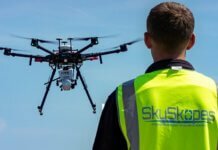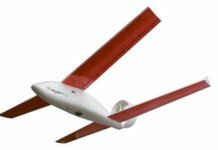In a landmark decision, the U.S. Court of Appeals for the D.C. Circuit has ruled that the Federal Aviation Administration (FAA) violated the FAA Modernization and Reform Act of 2012 when it placed registration requirements on hobbyist unmanned aircraft system (UAS) operators.
According to the court filing, John A. Taylor, a model aircraft hobbyist from Washington, D.C., challenged the FAA’s registration rule, which went into effect in December 2015. Under the rules, both hobbyist and commercial UAS operators must register drones weighing more than 0.55 pounds and less than 55 pounds – a move the Academy of Model Aeronautics (AMA), for example, called “contrary to Congress’ intent,” referring to the FAA Modernization and Reform Act’s Special Rule for Model Aircraft, Section 336.
As explained in the court filing, Section 336 states that the FAA cannot “promulgate any rule or regulation regarding a model aircraft”; however, the registration requirement is exactly that.
Thus, the court says, “The registration rule is unlawful as applied to model aircraft.”
In conclusion, the court has granted Taylor’s “petition for review of the registration rule,” as well as “vacate[d] the registration rule to the extent it applies to model aircraft.”
The fight against the agency’s regulating hobbyist UAS operations is nothing new, of course. After the registration rules came out, AMA even advised its members to not register their model aircraft with the FAA until the federal deadline or until AMA advised them to do so. Rather, in hopes of changing the rule, the group encouraged its members to “express [their] disappointment” in public comments to the agency.
Moreover, after the FAA released its proposed rules for commercial drone operations back in February 2015, AMA – which has been around since 1936 – reiterated that flying model aircraft and flying small UAS “are two very different activities.”
Reacting to the latest decision, Rich Hanson, president of AMA, says in a statement that the group is “encouraged to see the court affirm the strength of the Special Rule for Model Aircraft.”
“We have long held that federal registration of unmanned aircraft systems makes sense at an appropriate threshold of weight, capability and other safety-related characteristics,” he adds. “However, federal registration shouldn’t apply at such a low threshold that it includes toys. It also shouldn’t burden those who have operated harmoniously within our communities for decades and who already comply with AMA’s registration system.”
This latest court decision was argued on March 14 and was decided today. But will it stick? According to Forbes’ John Goglia, citing aviation attorney Loretta Alkalay, it’s possible the U.S. Department of Justice could appeal, but the Supreme Court would be “unlikely” to grant the appeal.
In response to the news, the FAA has issued the following statement:
“We are carefully reviewing the U.S. Court of Appeals decision as it relates to drone registrations. The FAA put registration and operational regulations in place to ensure that drones are operated in a way that is safe and does not pose security and privacy threats. We are in the process of considering our options and response to the decision.”
Accordingly, the Association for Unmanned Vehicle Systems International, expressing its disappointment with the decision, argues that the drone registration system in place is “important to promote accountability and responsibility by users of the national airspace and helps create a culture of safety that deters careless and reckless behavior,” Brian Wynne, president and CEO, says in a statement.
“We plan to work with Congress on a legislative solution that will ensure continued accountability across the entire aviation community, both manned and unmanned,” he continues.
In addition, the Small UAV Coalition says the ruling “generates uncertainty by eliminating a tool developed to maintain accountability and enable streamlined communication between the FAA and recreational UAS operators.”
“The FAA must have appropriate authority to maintain reasonable oversight of UAS operations, including management of a national UAS registry, which is the first step to identifying UAS operating in the national airspace,” the group explains in a release.
In turn, the coalition warns that a “lack of reasonable authority” could end up inhibiting the safe integration of drones into the National Airspace System (NAS).
As for the Drone Manufacturers Alliance, comprising 3DR, DJI, GoPro and Parrot, the group says it is still “studying the implications” of the ruling but “believes the existing system has worked well to protect the interests of safe and responsible pilots, as well as the interests of society at large,” according to a statement from Kara Calvert, the group’s executive director.
“As we wait for word on whether the FAA will appeal this ruling, we hope all sides see the benefit of a reasonable and minimally restrictive form of basic regulation that has helped make drone operations in America overwhelmingly safe. We look forward to working with policymakers on a long-term legislative solution.”
Lastly, in a statement from the Commercial Drone Alliance, the group believes that “registering drones and having reliable identification of all operators is critically important to holding operators accountable and enhances the safety of the NAS.”
“The registration requirement also provided much-needed education around the rules for safe hobbyist drone flight. As a policy matter, we believe the lack of a registration requirement could ultimately jeopardize the safety and security of the NAS,” the group says. “The alliance looks forward to working with Congress to ensure that the FAA has clear authority to require registration of all drones, including hobbyist drones.”








Can I get my $5 back?